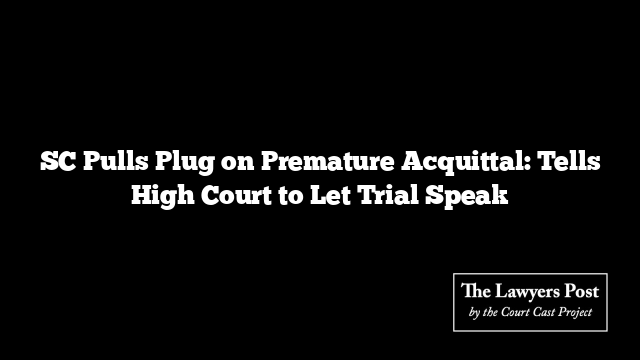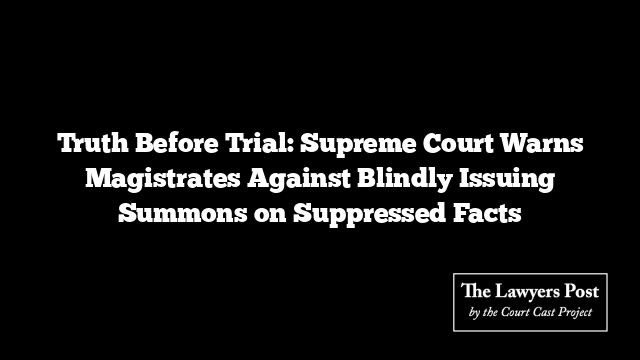In a sharp rebuke to judicial overreach, the Supreme Court has struck down a Madras High Court order that prematurely quashed a corruption case against a bureaucrat—before the trial even began. The apex court made it crystal clear: questions about the validity of sanction and conviction prospects aren’t for armchair analysis at the pre-trial stage—they belong in the courtroom.
A bench comprising Justices PS Narasimha and Manoj Misra wasn’t having any of it. The High Court, they said, jumped the gun by acting as if it were holding a mini-trial—something that the law simply doesn’t allow under Section 482 of the CrPC. Its findings about an “invalid sanction” and “bleak conviction chances” were not only premature but also contrary to established legal norms.
The accused, a public servant, stood accused of amassing disproportionate assets worth over ₹26 lakh between 2001 and 2008. An FIR was registered under Sections 13(2) read with 13(1)(e) of the Prevention of Corruption Act, 1988. After his discharge plea was rejected by the trial court—and again by the High Court in revision—the accused made a third attempt: a quashing petition.
Surprisingly, this time the High Court obliged, throwing out the FIR on the grounds of weak prospects and allegedly flawed sanction, despite earlier holding there was a prima facie case.
That’s where the Supreme Court stepped in.
“This is exactly what happens when courts preemptively interfere before prosecution gets a chance to present its material,” the judgment observed. The High Court, it said, erred by diving into disputes over things like the accused’s wife’s income, the daughter’s gifts, and sanction documents—all issues squarely meant for trial.
The real misstep, the Court noted, was the High Court’s mindset: instead of asking whether the case should proceed based on existing evidence, it essentially asked, “Will this end in a conviction?” That, said the Supreme Court, is not the right question to ask at this stage. It’s not about predicting the finish line before even starting the race.
The apex court referenced its earlier ruling in State of T.N. v. N. Suresh Rajan, reinforcing the principle that discharge is not a mini-acquittal and shouldn’t be treated as one.
Moreover, the Court pointed out a critical redundancy—the grounds raised in the quashing petition were identical to those in the earlier failed revision. Nothing new had emerged, and yet the High Court treated it as a fresh basis to junk the case. As for the “invalid sanction,” the Court said it could be explained or scrutinized at trial, including resolving the typographical error the State pointed out.
Delays in sanction, it added, aren’t solid ground to kill a case either.
In the end, the Supreme Court allowed the State’s appeal, restored the case, and directed the trial to proceed without further delay—especially since 17 years have already passed since the alleged offences.
The message from the country’s highest court was unambiguous: let trials do the talking.





